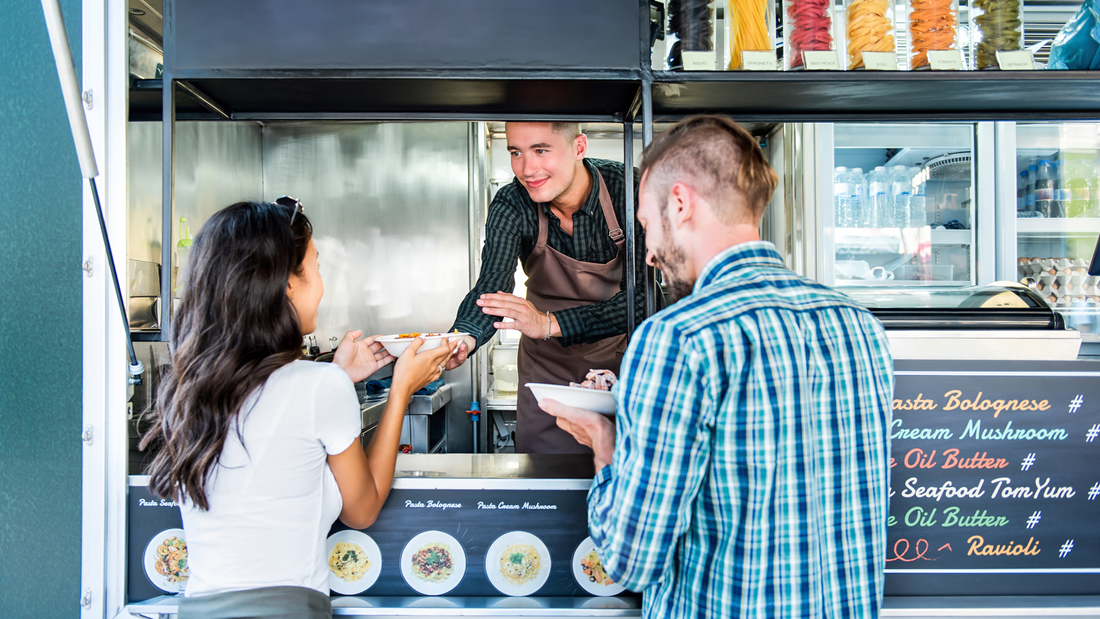
Starting a Food Trailer After Losing Your Job: Dream or Financial Risk?
Losing a job can feel devastating, but for some, it’s the push they need to finally chase independence.
That’s exactly the crossroad many people face when they own a food truck or food trailer that’s ready to roll but don’t know if they should take the leap. The dream is real: serving your own food, being your own boss, and building something from the ground up. But so are the risks, financial, legal, and physical.
So, if you’re in the same position with limited savings and a fully equipped food trailer ready to go, should you launch now or wait? Let’s take an honest look at what this decision really means, from startup costs and income realities to the role of food truck insurance in protecting your business.
The Reality of Starting a Food Truck or Food Trailer
Launching a food truck or trailer can be incredibly rewarding, but it’s also one of the toughest small businesses to start.
Margins are tight. Expenses come fast. And revenue rarely shows up on day one.
Many experienced operators will tell you that it takes at least six months to a year before a food truck becomes consistently profitable. In those early days, you’re dealing with:
- Permit fees and inspections
- Fuel and propane costs
- Food supplies and spoilage
- Truck maintenance
- Marketing and location scouting
- Health and safety requirements
With only a few thousand dollars in savings, that cash will burn fast, especially if you need to cover personal living expenses too.
But this doesn’t mean you shouldn’t start. It means you need a strategy.
The “Go for It” Argument, Why Some Entrepreneurs Take the Leap
There’s a reason the mobile food business is booming: it’s accessible, flexible, and personal. You control your menu, hours, and brand.
If your truck or trailer is already licensed and operational, you’ve completed 90% of the hard work. You’re ahead of most people who dream about starting.
Some entrepreneurs argue that waiting for the perfect moment never comes. You could spend months saving, only for new expenses or delays to appear. There’s something powerful about momentum, getting out there, testing your menu, and learning from real customers.
If you take this route, do it strategically:
- Start part-time, maybe weekends or evenings.
- Focus on one to three core dishes you can make perfectly and profitably.
- Find a great location, near offices, breweries, or busy intersections.
- Build relationships with event organizers and local businesses.
- Promote yourself heavily on social media before your first day.
Even small-scale operations can gain traction quickly if you offer quality food and consistent service.
The “Wait and Build” Perspective, Why Some Say to Hold Off
Not everyone should go straight for it.
Launching a food trailer on a shoestring budget can turn into a money drain if you’re not fully prepared. Some operators suggest finding a day job or part-time gig while running your food business during evenings or weekends.
This gives you breathing room, financially and emotionally, so you’re not operating in panic mode.
It also gives you time to:
- Finalize your menu and pricing strategy
- Test locations without pressure
- Create a financial cushion for repairs, fuel, and slow days
- Secure stronger food truck insurance before exposing yourself to risk
Remember: food businesses are seasonal. Rain, cold, or heat can crush your daily revenue. A side income can keep you stable until your business matures.
The Harsh Truth About Food Truck Economics
The average food truck brings in about $250,000–$500,000 annually, but that’s before subtracting food costs, gas, payroll, and maintenance.
If you’re working alone and selling a $15 meal, you’d need to sell around 33 meals in a 3-hour lunch rush just to make $500. At a 25% food cost, that’s $125 gone immediately, before counting your time, fuel, and propane.
Then there’s wear and tear. Tires, fryers, and refrigeration units don’t last forever. Equipment failure can wipe out an entire week’s profit.
This is why smart operators think about risk management from day one, not just profit. A breakdown, accident, or customer injury can set you back thousands. And that’s where the right food truck liability insurance becomes essential.
Why You Need Food Truck Insurance
Operating a food trailer or truck means you’re running a full-scale business on wheels. That means your personal auto or homeowners policy won’t protect you if something goes wrong.
Food truck insurance and food trailer insurance are designed to cover:
- General Liability: If a customer slips near your truck, gets burned, or claims food poisoning, this covers legal costs and settlements.
- Commercial Auto Insurance: Protects the truck or trailer itself from collisions, theft, or vandalism.
- Property & Equipment Coverage: Replaces or repairs fryers, generators, and refrigeration units damaged by fire, storms, or accidents.
- Workers’ Compensation: Covers injuries to employees or helpers while working on the truck.
- Product Liability: Protects against claims related to your food, such as allergic reactions or contamination.
- Business Interruption Coverage: Reimburses lost income if your truck is out of service due to a covered incident.
Without proper insurance, one bad day can erase months of work and investment.
For a deeper breakdown of what each policy covers and how to get insured affordably, check out our full guide: Thinking About Starting a Food Cart Business? Here’s What You Need to Know
Planning Beyond the First Month
Let’s be honest, $3,000 won’t last long once the truck hits the road.
Before launching, write out a simple business plan that includes:
- Your target market and average customer
- Expected daily revenue and expenses
- Backup locations for bad weather or low traffic days
- Maintenance and supply costs
- Your break-even point (the minimum you must sell to profit)
You don’t need an MBA to make this work, just realistic math and discipline.
Even if you start small, map out how you’ll reinvest early profits into growing your business and maintaining your equipment.
Protecting Yourself Legally and Financially
A food truck is more than a passion project, it’s a moving business with real legal and safety obligations.
Before serving your first meal, make sure you:
- Have all required health permits and safety inspections.
- Secure your food vendor license and renew it annually.
- Carry valid food truck insurance with at least general liability and commercial auto coverage.
- Track all income and expenses for taxes and compliance.
-
Store and dispose of waste properly to avoid environmental fines.
Skipping these steps might save a few dollars short term, but the penalties or risks could shut you down permanently.
What Success Really Looks Like
The most successful food truck and trailer owners share a few common traits:
- They know their numbers, food cost, profit margin, break-even point.
- They treat it like a business, not a hobby.
- They invest in marketing and location scouting.
- They prioritize safety and liability coverage.
- They’re patient, building a reputation takes time.
Food trucks and food carts that survive their first year tend to become local favorites. But the operators behind them stay consistent, adaptable, and insured.
The Smart Approach: Dream Bold, Plan Smarter
Starting a food trailer when money is tight isn’t impossible, but it demands balance. You can take the leap while being responsible. Work part-time, test your menu, and cover your risks with the right insurance.
A single fire, accident, or lawsuit could undo everything. But with food truck insurance in place, you’re not gambling your livelihood, you're investing in it.
If you’re serious about running your truck or trailer full-time, don’t skip this step.
Read our full guide to food truck and food cart insurance here.
Launching a food truck is brave, it’s betting on yourself. But success doesn’t come from risk alone; it comes from preparation, protection, and persistence.
Whether you start now or wait until you’re more financially ready, take care of the one thing you can control: your safety and sustainability.
Because every dream deserves to be insured.
